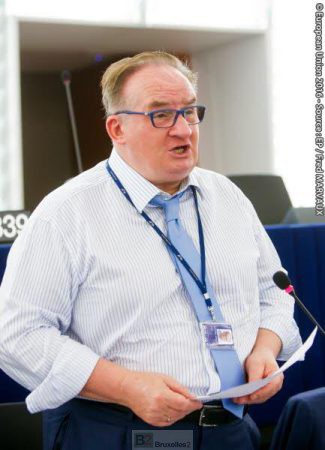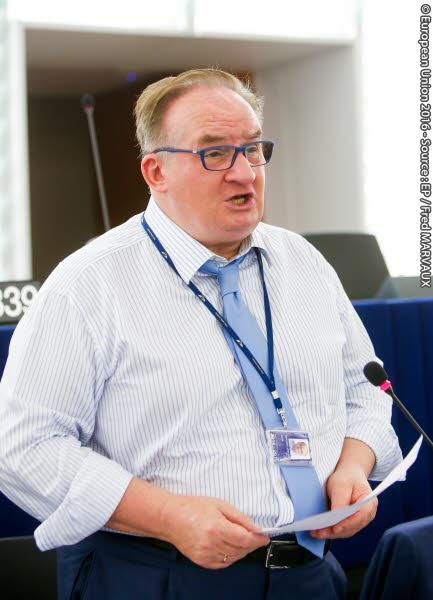Warsaw presents an anti-candidate against Donald Tusk. Defeat announced for Szydło?

(B2) The election of the new President of the European Council will be marked by the seal of a little melodrama, very oriental, this Thursday (March 9). An unprecedented event at European level. For once, a government is not going to support one of its nationals who can claim a leading position at European level, even presenting a counter-candidate to undermine this candidacy (1).
In the European ranks, the candidacy of the Pole Donald Tusk, for a second term of two and a half years (2), seemed in recent days to no longer really arouse doubt. Everyone seemed to be somewhat in agreement, even if not everyone really shared the style and theimpetus of the Polish. But now a pebble has slipped into the candidate's shoe: his own country, Poland!
An application from a glorious stranger
To counter Donald Tusk (and the other Europeans), Beata Szydło's government did not present a candidacy that was really likely to draw a wave of enthusiasm behind it. On the contrary, she took good care to choose a candidate, who has no chance of being elected. Quite simply, because he does not meet the expected criteria for this position. Jacek Saryusz-Wolski has undeniable qualities, personal, human and in terms of European expertise, even if he is politically fickle (3). But he was never either Prime Minister or Head of State (“ not even a minister for that matter as a European diplomat whispered). Which is one of the essential conditions, even if it is unwritten, to occupy this position (4).
The European Council: a club
The European Council is not, in fact, a traditional institution, and even less an administration. It is above all a club. A gathering of people who all have their political background, their experience, their temperament, and their ego. One does not become Prime Minister, or President, by chance, in any country. To reach such a position, you need ambition, character, a strong will. It is therefore important on the one hand to have already passed this test, this barrier, in order to be accepted. Then you have to have rubbed shoulders with each of them for a while, have had dinner with one or the other, spend a few evenings debating rain or shine, the Euro and Russia, to to be recognized, even to get to know certain members a little more intimately. Finally, it is important to clearly identify the operating rules of this "club", which does not really have any posted rules, but a whole series of things left unsaid. Above all, it is a matter of clearly identifying the factors of tension or unity between all these personalities.
The President of the Council is not just a bell ringer
The President of the Council is, in fact, more of a "chairman", the president of a board, than a formal chairman who is there to ring the bell to open the meeting, read the agenda, and then go and do the kakou in front of the press, at the end of the meeting, with a good word or two. He must know how to bang his fist on the table when necessary, take the initiative when he feels the time has come, remain discreet at other times. Above all, he must act behind the scenes to mend positions, find the strengths of a possible consensus or the flaws in a proposal that risks causing a significant division. It is great art, political lace which requires a certain confidence from the 28 Heads of State and Government, their esteem and their respect.
An unknown royal
By presenting a royally "unknown" MEP according to the very words of the diplomats currently in Brussels (5), Warsaw not only displayed a singular contempt for this function but, above all, ridiculed Poland, by bringing quarrels about no one, no doubt very interesting in the three bars around Nowogrodzka (the headquarters of the PiS) but which really do not interest anyone at European level (and even in Poland, I think). Moreover, the Polish government is forgetting a small mathematical factor: a President of the European Council, if he is not appointed by consensus, is elected by qualified majority. And, even with the very possible support of Hungary, Poland is far from obtaining this majority...
There were valid candidates...
That's a shame. As if Poland had no other valid candidate to present. If Warsaw had presented the candidacy of Lech Wałęsa, for example, it would have been a hit. It was a real symbol. And that would have caused trouble (6). Even the candidacy of the President of the PiS, Jarosław Kaczyński, would have been wise. He would have lost, but with a certain panache, because, after all, he is a good symbol of the choice between the two existing models of European policy: that of integration and cooperation, that of State sovereignty and simple coordination politics.
A result... contrary to the objective
The candidacy presented by Warsaw will have had at least one initial result: no one, or almost, finds fault with Tusk's candidacy today. By not supporting his compatriot, the Polish government did him a great service: it silenced any possible criticism (there weren't many left to tell the truth) and rolled out the red carpet for him for his re-election! If, despite everything, Tusk is not re-elected, what is certain is that it will not be a Pole who will occupy the seat of the European Council. For a government that claims to want to put Poland's beacon on high, that's... dumb.
(Nicolas Gros-Verheyde)
(1) Portugal had thus supported the renewal of José-Manuel Barroso as President of the European Commission. Ditto when Jacques Chirac had accepted the presence of his former rival, Valéry Giscard d'Estaing as President of the Convention.
(2) The mandate of the President of the European Council is two and a half years, renewable only once. That is a term of 5 years. Donald Tusk's predecessor, Herman Van Rompuy, was renewed mid-term.
(3) Official member of the Civic Platform (PO), the party of Donald Tusk in the current opposition to the PiS, Saryusz-Wolski always has an atypical position, sometimes quite close to the PiS... especially when a position is loomed on the horizon. His name had thus been mentioned as a possible Minister of Foreign Affairs, before the PiS' choice of Witold Waszczykowski was announced.
(4) Read: How is the President of the European Council appointed? Formal and informal criteria
(5) In the corridors of Europe, the candidacy presented by Warsaw is commented on, with all the cruelty of which diplomats can be capable. " I heard the Polish delegation talk about this candidacy of a Polish parliamentarian – whose name I would not like to pronounce for fear of hurting him –. An almost unknown for all heads of state and government » quips an experienced diplomat.
(6) At least in the West. The aura of the former leader of Solidarity seems a little erased in Poland itself and with Kaczyński, relations are at the ice cube state...

